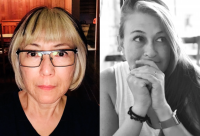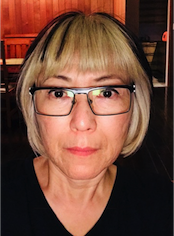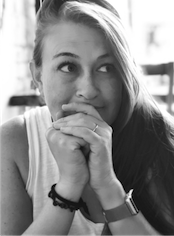
By Krystin Ventura
Hitomi Asahara and Alison Killilea were recently recognized for their contributions to the University with campus staff awards. Both scientists are directors of MCB research facilities and have found creative, innovative ways to improve or enhance their facilities. In turn, their work will help other UC Berkeley scientists perform their research more efficiently.

Hitomi completed her postdoctoral training at UC Berkeley and has served as the Director of the UC Berkeley DNA Sequencing Facility since 2003. Early on, she discovered that the facility, which currently processes nearly 28,000 Sanger sequencing samples every month, spent over $100,000 per year for a reagent used solely to clean its sequencing reactions. Seeking alternatives, Hitomi searched through academic literature related to Sanger sequencing reaction cleanup methods and found a recipe for a similar cleaning reagent in a minor publication. After experimenting with different components and adjusting the recipe, Hitomi produced a cleaning reagent that worked just as well as the one they had been purchasing at hefty prices for years — and brought down the facility’s annual costs on this cleaning product from $100,000 down to just $2,000 per year. Hitomi’s recipe allows the DNA Sequencing Facility to run efficiently and cost-effectively and has earned her a UC Berkeley SPOT Award.

Alison earned her PhD at UC Berkeley and has served as the Biosciences Facility Director overseeing four MCB scientific facilities since 2015. Before her current position, she spent fifteen years in the field of cancer research. In late 2017, she and the Cell Culture Facility on campus received a collection of human induced pluripotent stem cells from the Allen Institute in Seattle. Alison spent six months diligently tending to the growing collection, which required daily maintenance to ensure that the cell lines retained pluripotency. Their work with the collection has drastically reduced the cost of stem cell lines for UC Berkeley researchers from up to $700 to only around $200 per line, earning her an Achievement Award from the College of Letters & Science. In the future, Alison hopes these cell lines will be available not only to Berkeley researchers but to all UC researchers who wish to use them. She’s excited to see how advancements in stem cell research will propel the field forward and provide viable treatments for cancer, heart disease, and neurological disorders.
Both Hitomi and Alison are exceptional scientists who have risen to the challenge of propelling scientific innovation forward here at UC Berkeley. Their dedication to creative problem solving represent the core values of both MCB and UC Berkeley and it's thanks to staff like them that UC Berkeley continues to rank as one of the best universities in the world.
Image Credits: Hitomi Asahara & Alison Killilea